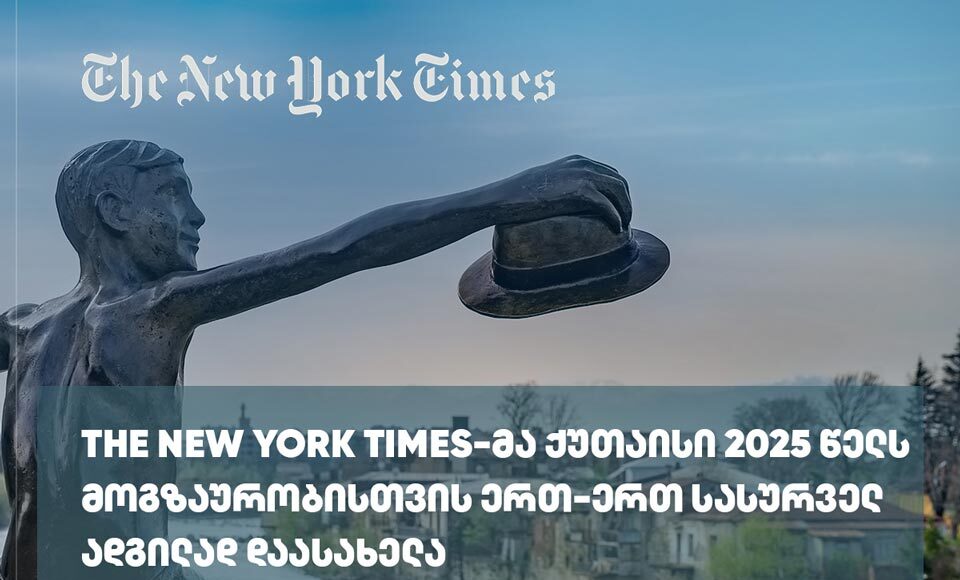The New York Times publication named Georgia’s western city of Kutaisi as one of the best places to travel in 2025 in its annual “52 Places to Go in 2025” list.
According to the article, Kutaisi is among the must-visit destinations by representing one of the oldest continuously inhabited cities in the world, with rich history and surrounded by abundant natural beauty.
“In recent years, the city has gained broader attention, thanks to direct flights from dozens of European cities via discount airlines,” reads the article.
The article says that this year, Kutaisi will open a new interactive digital museum, housed in a former royal residence, highlighting its 3,500-year history. Additionally, a new cultural center will host folk evenings “featuring traditional Georgian dancing and polyphonic singing.”
The magazine further noted that Kutaisi was an ideal starting point for exploring the Caucasus Mountains, the Black Sea coast, cave dwellings, and nearby castles and villages, adding that visitors could also enjoy the city itself, touring its historical center, Green Bazaar, and an array of cafes, bars, restaurants, and ancient churches.

